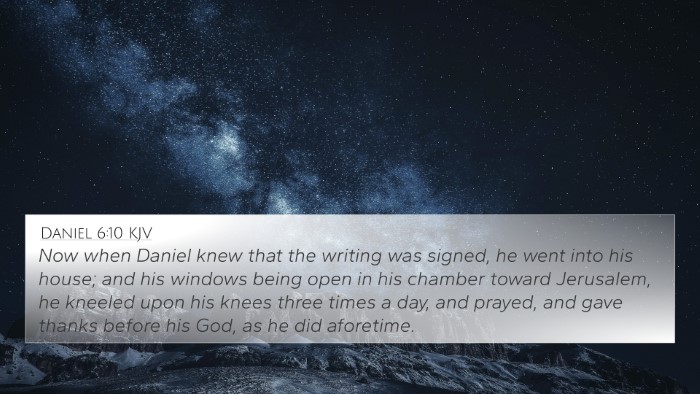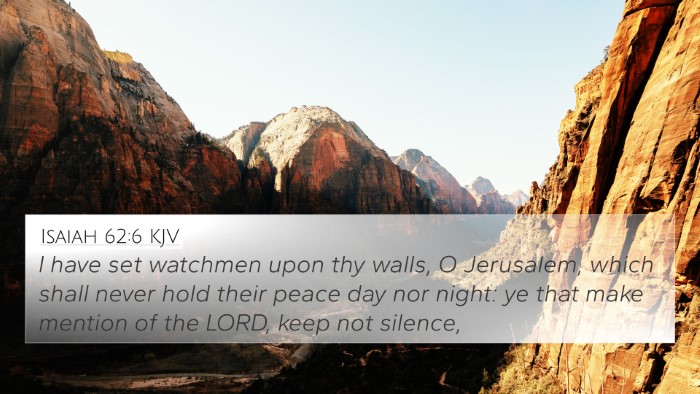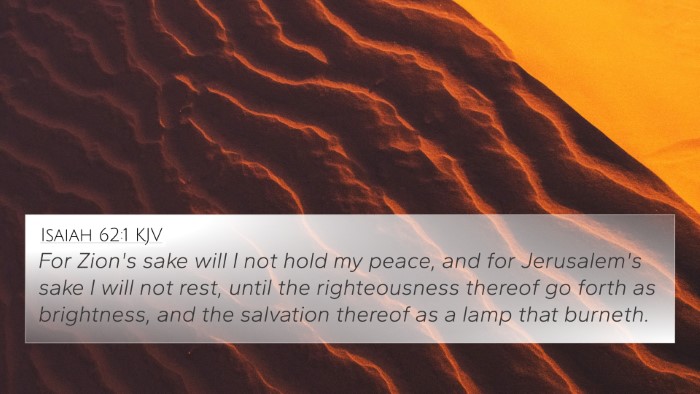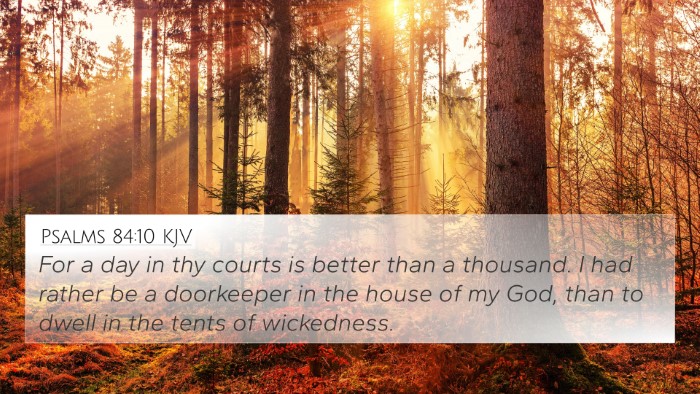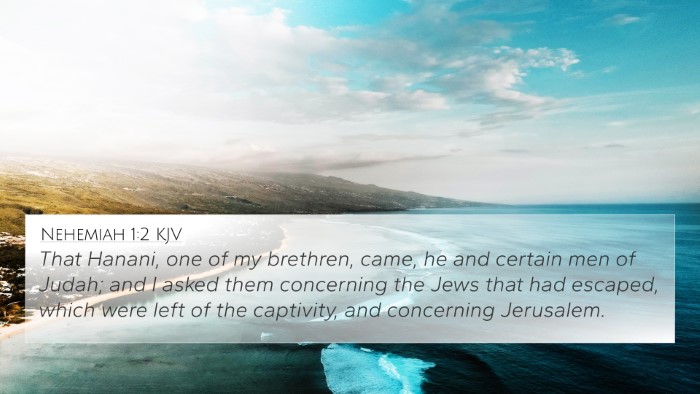Psalms 137:5 - Verse Meaning and Interpretation
Bible Verse: Psalms 137:5
This verse states, "If I forget thee, O Jerusalem, let my right hand forget her cunning." It encapsulates a powerful and poignant sentiment regarding memory, loss, and longing.
Summary of Insights
The verse reflects the deep emotional connection the Israelites had to Jerusalem, their holy city, and serves as a reminder of their heritage. In terms of interpretation, several key themes emerge:
- Importance of Memory: The psalmist emphasizes the need to remember Jerusalem, suggesting that forgetting it equates to a loss of identity and faith.
- Consequences of Forgetting: The invocation of the right hand forgetting its skill serves as a metaphor for losing one’s ability or purpose should they forget Jerusalem.
- Connection to Exile: This verse must be understood in the context of exile; the psalmist expresses despair while lamenting over the loss of the city that was central to their worship and community.
- Emotional Weight: The plea signifies a deeper layer of emotional anguish, as the loss is not just physical but spiritual, highlighting the covenant relationship with God.
Commentary Insights
Matthew Henry: Henry notes that this verse underscores the importance of Jerusalem as a source of joy and identity. He highlights that the psalmist implores separation from any skills or joys if they fall into forgetfulness concerning Jerusalem's sanctity.
Albert Barnes: Barnes points out the rhetorical nature of the statement. It serves not merely as an oath but reflects a deep commitment to the city, grounding the sentiment in a desire to remain faithful to God’s covenant by not forgetting His chosen place.
Adam Clarke: Clarke elaborates on the notion of skill (cunning) referring to the workmanship, emphasizing that forgetting Jerusalem would render them incapable, tying identity to their sacred history and place.
Bible Cross-References
This verse connects with various significant passages throughout the Bible, providing a composite view of themes surrounding memory and divine connection. Key cross-references include:
- Psalms 122:6: "Pray for the peace of Jerusalem: they shall prosper that love thee."
- Lamentations 1:7: "Jerusalem remembers in the days of her affliction and her miseries all her pleasant things that were from the days of old."
- Isaiah 40:9: "O Zion, that bringest good tidings, get thee up into the high mountain; O Jerusalem, that bringest good tidings, lift up thy voice with strength."
- Revelation 21:2: "And I, John, saw the holy city, new Jerusalem, coming down from God out of heaven, prepared as a bride adorned for her husband."
- Hebrews 13:14: "For here have we no continuing city, but we seek one to come."
- Daniel 9:2: "In the first year of his reign, I Daniel understood by books the number of the years, whereof the word of the LORD came to Jeremiah the prophet, that he would accomplish seventy years in the desolations of Jerusalem."
- Luke 13:34: "O Jerusalem, Jerusalem, which killest the prophets, and stonest them that are sent unto thee."
- Matthew 5:35: "Nor by the earth; for it is his footstool: neither by Jerusalem; for it is the city of the great King."
- Zechariah 2:10: "Sing and rejoice, O daughter of Zion: for, lo, I come, and I will dwell in the midst of thee, saith the LORD."
- Jeremiah 29:7: "And seek the peace of the city whither I have caused you to be carried away captives, and pray unto the LORD for it: for in the peace thereof shall ye have peace."
Connections Between Bible Verses
The thematic connections between these scriptures illustrate God's intentions for Jerusalem as a center of divine revelation and communal identity. The quotes from prophets and the teachings of Jesus enhance the understanding of Jerusalem's spiritual significance throughout biblical history.
Conclusion
In conclusion, Psalms 137:5 articulates a heartfelt plea that resonates throughout the Scriptures, highlighting the enduring significance of Jerusalem. The emotional weight and the contextual background amplify the importance of memory and attachment to divine places within the spiritual journey of believers.





